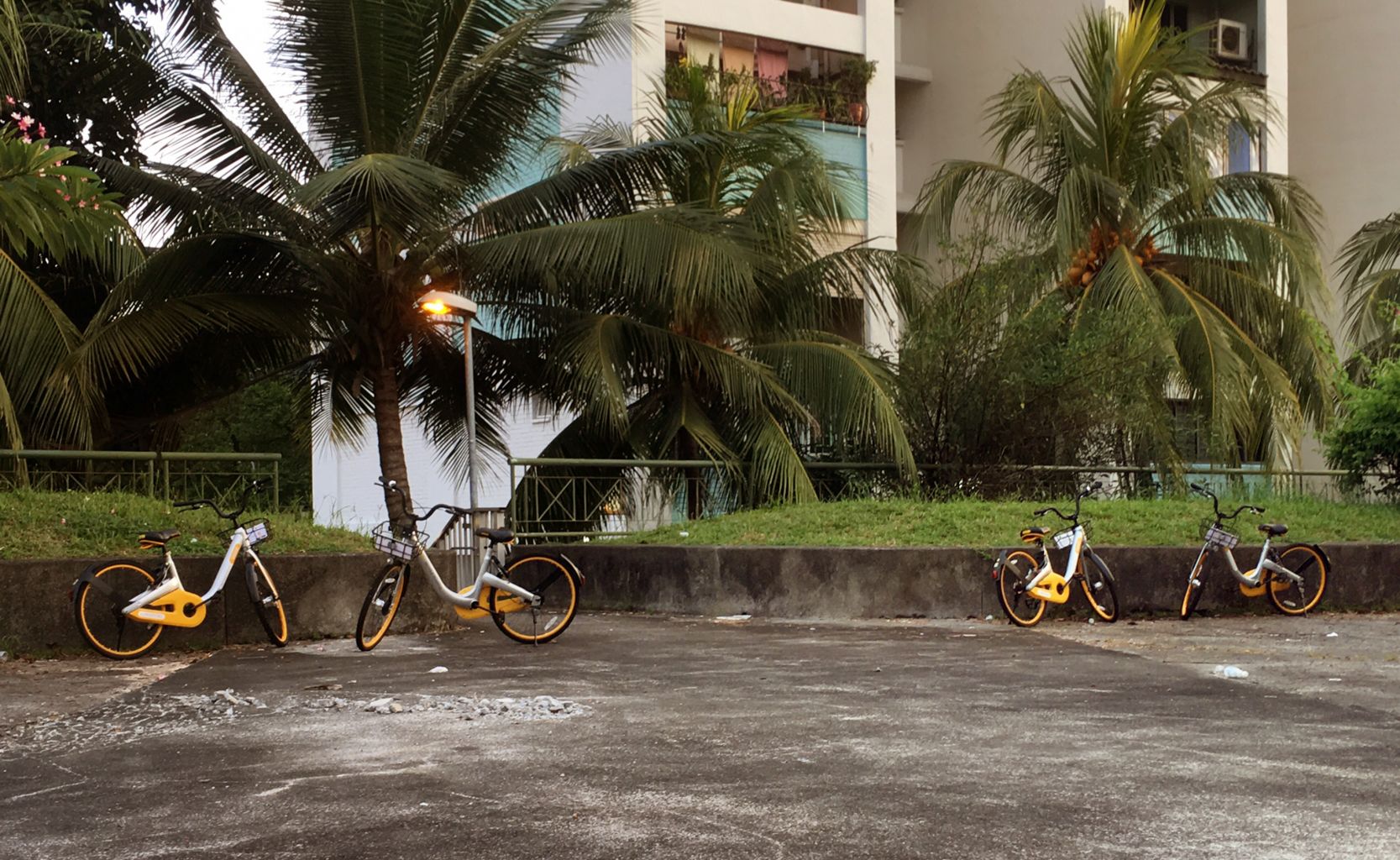oBike launches geofencing feature for its shared bicycles to curb indiscriminate parking
Sign up now: Get ST's newsletters delivered to your inbox

There will be a six-month trial in which oBike users who do not park their bicycles within designated areas will receive a notification to inform them the bikes have not been parked properly.
PHOTO: ST FILE
SINGAPORE - Bicycle-sharing firm oBike on Friday (Oct 27) introduced geofencing for its service here, aimed at curbing irresponsible parking of its bicycles.
It has set up a geofencing feature to determine if oBike's two-wheelers are parked within one of the 1,100 bicycle parking zones islandwide. The feature creates a virtual boundary that can send out an alert when a bicycle enters or leaves an area.
Users will be notified when they enter a geofenced area.
The move is in line with guidelines set out in an agreement announced earlier this month among the Land Transport Authority (LTA), the five bike-sharing operators here, the National Parks Board and all 16 town councils.
The agreement requires all five operators to implement geofencing to curb indiscriminate parking.
To encourage users to park within the designated parking areas, there will be a six-month trial in which oBike users who do not park their bicycles within designated areas - indicated by a letter P on their app - will receive a notification to inform them the bikes have not been parked properly.
After this six-month period, users will have points deducted from their accounts if they do not park within these areas, and will not be allowed to use the oBike service when their points are depleted.
Users who park within the designated areas will have points credited to their oBike accounts, which can be accumulated and exchanged for rewards such as shopping vouchers.
"Our aim is to nudge users into positive bike-sharing behaviour and ultimately shape a more gracious cycling community," said oBike co-founder Edward Chen.
On requiring its bicycles to be parked within designated areas, rather than wherever users deem convenient, Mr Chen said the firm's aim of bringing "greater mobility and convenience" to commuters could be achieved only if it "worked towards educating commuters and building an ecosystem that encourages considerate cycling and parking behaviour".
"To ensure a higher degree of accuracy, oBike will launch and complete its beacon geofencing by the second quarter of next year," said a spokesman for the Singapore-based firm.
When asked how the beacon geofencing technology would work, Mr Chen would say only that the firm was "working closely" with the LTA on its implementation, and would be able to share more information only at a later date.
The LTA had also earlier said it was exploring the use of physical infrastructure to enhance the accuracy of geofencing technology for shared bikes.
SG Bike, which launched in August with about 300 bicycles in the Holland-Bukit Panjang area, also requires its users to park around a "geostation" - which emits a radio-frequency identification field that recognises the firm's bicycles - or risk a fine.


